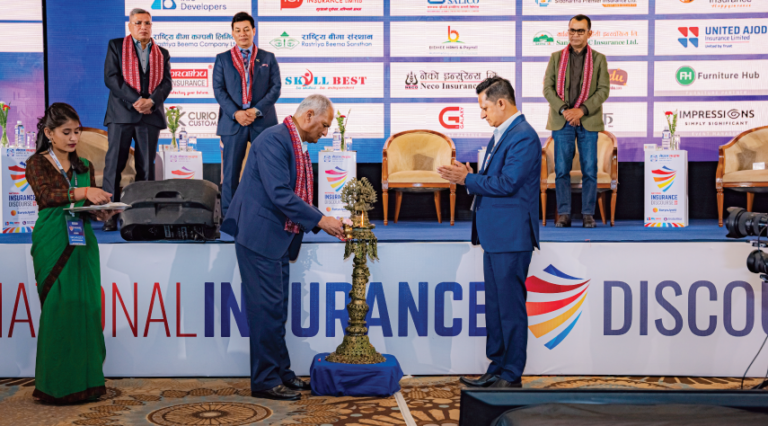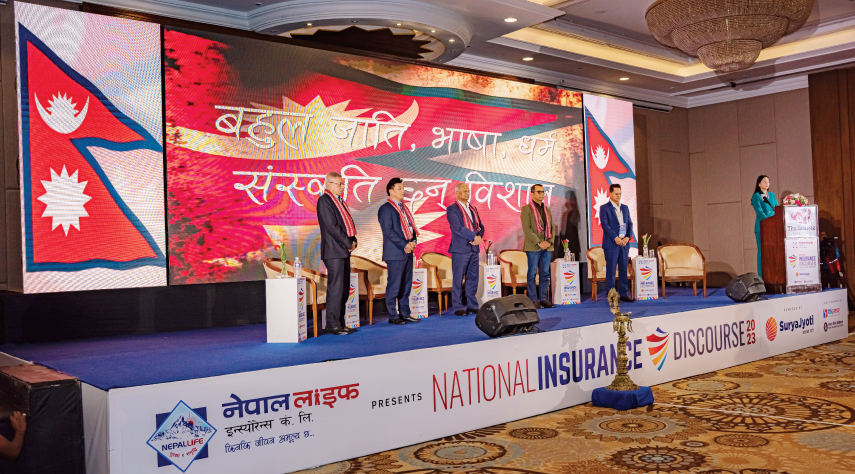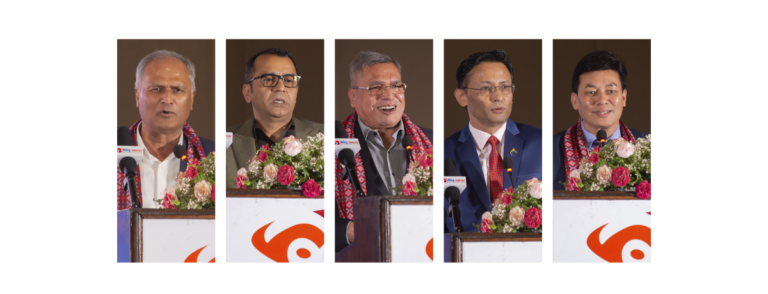PRIMER
Insurance is not merely a benefit but a fundamental protection. Unfortunately, despite more than five decades of the insurance business in Nepal, there remains a widespread misconception among the general public. Many still compare the amount insured with the amount deposited in a bank. The past devastating earthquakes in Nepal inflicted over seven billion in physical damages, a significant financial burden that could have been alleviated through proper insurance coverage. Similarly, the COVID-19 pandemic not only wreaked on people’s health but also caused irreparable financial damage and disrupted livelihoods. But the individuals and businesses invested in insurance on time, the impact would have been far less severe. Nepal faces various challenges within its insurance sector. Some insurance companies in the country engage in opaque practices, occasionally settling claims based on documentation rather than genuine needs. Additionally, a shortage of skilled manpower and agents
contributes to the difficulties in promoting insurance awareness and coverage. Furthermore, Nepal heavily relies on foreign insurance companies for reinsurance, resulting in substantial capital outflows every year. In contrast, in many other countries, insurance is not just a requirement but a vital component of the economy. To enhance the quality of life for its citizens, Nepal must embrace health insurance and micro-insurance at the local level. This necessitates a comprehensive understanding of these insurance types across all government levels and agencies. Therefore, to help to raise awareness in these issues, it is imperative to engage in meaningful discussions regarding the importance, role, challenges and opportunities within the Nepalese insurance sector. By dispelling misconceptions, improving transparency, and expanding insurance coverage, the country can better protect its citizens and boost its economic resilience.
EVENT INAUGURATION


EVENT OPENERS
































 About Us
About Us